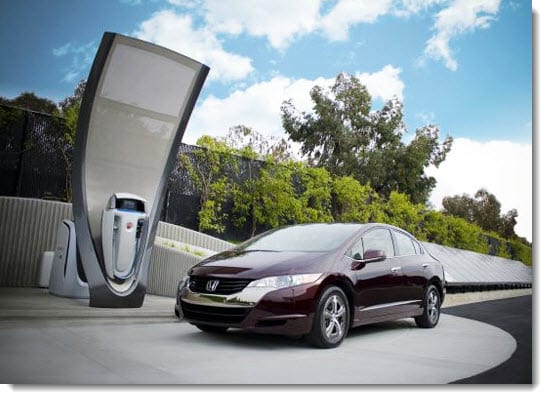Germany may have a massive hydrogen fuel infrastructure by 2023
May 9, 2016H2 MOBILITY has ambitious plans to bolster hydrogen infrastructure in Germany
Several countries have begun to show strong support for hydrogen fuel cells, but few have been as aggressive in this effort as Germany. The country’s H2 MOBILITY initiative has been leading the charge for the development of a comprehensive hydrogen infrastructure and the adoption of fuel cell vehicles. While fuel cell vehicles are already available in limited supply, they do not have the support of a comprehensive fueling infrastructure, which may slow their adoption in the coming years.
400 hydrogen stations expected to be open to the public by 2023
By 2023, H2 MOBILITY plans to have installed 400 hydrogen fuel stations throughout Germany. These stations will exist as a comprehensive network that will provide national support for fuel cell vehicles. If successful, this initiative would make Germany home to the largest hydrogen fuel infrastructure in the world, which may also make it one of the most attractive clean transportation markets for automakers. Several of the world’s largest automakers plan to launch their fuel cell vehicles in the coming years, but may fail to find success if a fueling infrastructure is not available.
Hydrogen technologies are becoming more efficient and less costly
 According to H2 MOBILITY, hydrogen-centric technology has been evolving at a rapid pace. Fuel cells are becoming less expensive and more efficient, while hydrogen production technologies are following the same trend. Compared to other forms of clean power, hydrogen remains somewhat costly. As the demand for hydrogen grows, however, the need for less expensive production methods and better fuel cells is becoming more apparent, pressuring many organizations to accommodate demand.
According to H2 MOBILITY, hydrogen-centric technology has been evolving at a rapid pace. Fuel cells are becoming less expensive and more efficient, while hydrogen production technologies are following the same trend. Compared to other forms of clean power, hydrogen remains somewhat costly. As the demand for hydrogen grows, however, the need for less expensive production methods and better fuel cells is becoming more apparent, pressuring many organizations to accommodate demand.
Germany continues to see growth in its already strong hydrogen fuel infrastructure
Germany is home to an already substantial hydrogen fuel infrastructure. The country has been bolstering this infrastructure over the past few years, hoping to pave the way for the arrival of fuel cell vehicles. Germany is heavily invested in clean transportation, believing that it can mitigate the impact of climate change by limiting the emissions produced by vehicles.

 HFN News is your leading source for fresh hydrogen and renewable energy updates. Amid the fast-paced growth of hydrogen companies, we provide top-notch news and insights about this exciting sector. Our coverage spans from hydrogen cars to global sustainable initiatives, and we highlight the latest in green jobs and developing hydrogen hubs. We invite you to share your local hydrogen news and explore today’s renewable energy job listings on our site. Thanks for choosing HFN News as your trusted guide to the hydrogen and renewable energy world!
HFN News is your leading source for fresh hydrogen and renewable energy updates. Amid the fast-paced growth of hydrogen companies, we provide top-notch news and insights about this exciting sector. Our coverage spans from hydrogen cars to global sustainable initiatives, and we highlight the latest in green jobs and developing hydrogen hubs. We invite you to share your local hydrogen news and explore today’s renewable energy job listings on our site. Thanks for choosing HFN News as your trusted guide to the hydrogen and renewable energy world!
